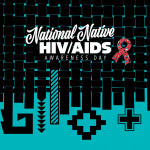I have long resisted the identity of long-term survivor. I tested HIV positive in 1992 at the age of 22, four years before effective treatment. Regardless, for most of my time living with HIV, I just didn’t think I had earned the honor of being considered a long-term survivor.
From my perspective back then, only those who witnessed early AIDS up close deserved to be called long-term survivors. To be fair to myself, I believe that perspective was spot on when I was first diagnosed with the retrovirus. I changed my mind in 2017.
After 25 years of living with HIV, I finally felt comfortable identifying as a long-term survivor. I feel that identity applies to me even more now that I’ll soon be turning 50 years old. In August I will finally become a member of the 50+ club, and I’m thrilled.
In 1992, aging with HIV was a privilege I never thought would become reality for me. I completely expected to die before I saw 30. I behaved that way, too. Ever since I turned 30, I’ve been adjusting to the fact that I’m still alive and probably will be for a long while.
So I was jolted a bit when I recently tested antibody positive for COVID-19. I had what I thought was a mild flu in February, but when reports started that the new coronavirus had been circulating in the New York area earlier than thought, I became suspicious.
I doubted my initial HIV-positive test result, so I got tested again soon after to confirm. The same was true for my COVID-19 result. I had it confirmed with a second test from a different lab. Both labs are reputable, so I have decided to accept the result as true.
My reason for doubting my initial HIV test result was mostly about not wanting to accept the possibility of an early death. For COVID-19, my initial doubt was based on the chance of a false positive and my partner testing COVID-19 antibody negative.
I know folks are going to ask, so I’ll just say it. My partner and I have always had an agreement that if one of us is sick we stay away from each other. I slept on the couch for a week when I was sick, so perhaps enough to stay away when I was most infectious.
I can’t deny that I have a sense of relief. I most likely had the new coronavirus and it didn’t kill me. There is comfort in that thought. However, in addition to my decision to accept the result as true, I have also decided not to change my COVID-19 pandemic behaviors.
I have no idea if my antibodies provide immunity from reinfection. Even if they do, I have no idea how long that may last and no idea if being reinfected will be milder or worse for me. Say my immunity is only for a few months. That means I would already be susceptible.
I do not want to contribute to the spread of the new coronavirus, if I can help it. And I can. I will continue to abide by physical distancing, wearing a mask when appropriate, washing my hands frequently and avoiding touching my face to the best of my ability.
Coping with the new normal — which includes not only COVID-19 but also the resurgence of the Black Lives Matter movement — was the topic of the inaugural episode of the POZ at Home series. Our guests were Mark S. King, Venita Ray and Charles Sanchez.
Watch:
Reporting on the new normal was the topic of a recent webinar by NLGJA: The Association of LGBTQ Journalists. I participated as a panelist, along with Mark S. King and Olivia Ford.
Watch:
I am grateful to be able to commemorate HIV Long-Term Survivors Awareness Day, marked every year on June 5, as a long-term survivor. Living with the retrovirus and now surviving the new coronavirus have only reinvigorated my commitment to uplifting others.
That includes people living with HIV and those who have had COVID-19, as well as those affected by stigma, discrimination and violence. That includes people of color, of course, but we must say explicitly that it includes Black people. Black Lives Matter. Period.
HIV wasn’t a club I wanted to join, but I’ve met some of the most wonderful people as a result, so I can’t say it hasn’t been meaningful. I hope my journey ahead as a member of the unwanted COVID-19 club turns out to be just as consequential.
As a down payment toward that end, I’m asking my health care provider to include me in a registry for people living with HIV who have had COVID-19. There are a few such studies underway. Stay tuned for more related coverage from POZ.
P.S. Those photos of me show off my second self-haircut. I’m looking forward to seeing my barber again!







